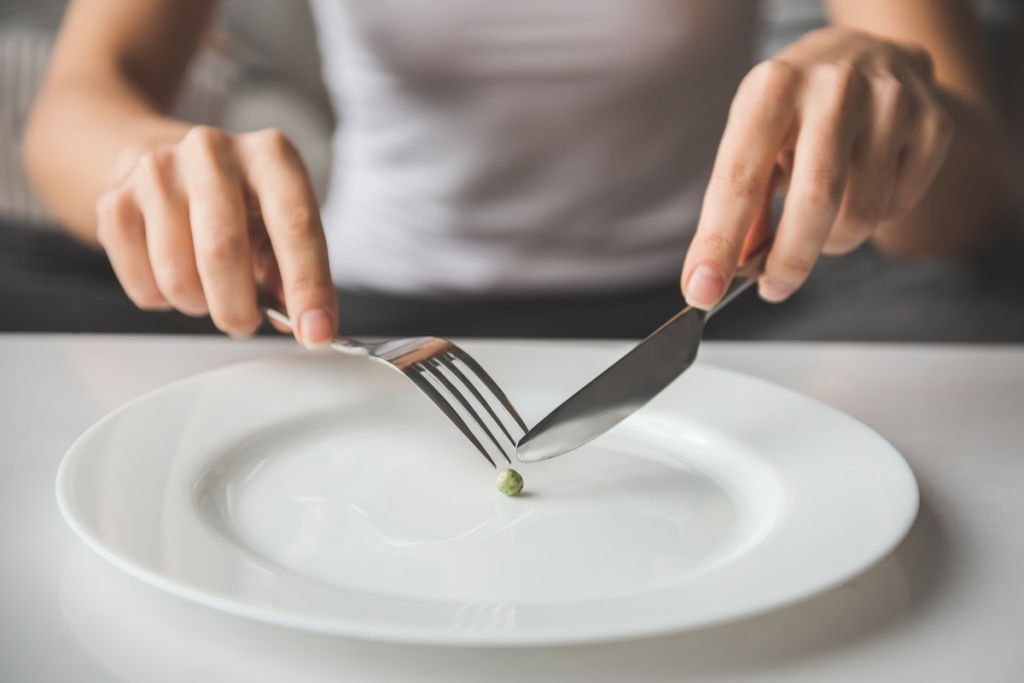Eating disorders are serious eating behaviours, which can be fatal if left untreated. They include anorexia nervosa, bulimia nervosa, and binge eating.
- Anorexia nervosa is characterised as becoming too thin (see malnutrition) when persons do not eat enough because they think they are fat.
- Bulimia nervosa involves periods of overeating followed by purging, sometimes through self-induced vomiting or using laxatives.
- Binge eating is out-of-control eating, often to the point of being uncomfortable. It is similar to bulimia but without purging.
Compulsive overeating has been classified as a separate eating disorder by some and included with binge eating by others. It has been called an addiction to food. Persons with compulsive overeating use food to cope with their feelings, which leads to obesity. Like those who suffer from binge eating, compulsive overeaters are at risk of heart attack, high blood-pressure, high cholesterol, kidney disease and/or failure, arthritis and bone deterioration, and stroke.
Who gets eating disorders?
- Women are more likely than men to have eating disorders.
- They usually start in the teenage years and often occur along with depression, anxiety disorders, and substance abuse.
How are eating disorders managed?
- A qualified health professional should assist with diagnosis and management.
- Eating disorders can cause heart and kidney problems and even death. Getting help early is important.
- Treatment involves monitoring, mental health therapy, nutritional counseling, and sometimes medicines.
Reference : https://www.nlm.nih.gov/medlineplus/eatingdisorders.html, http://www.nimh.nih.gov/health/publications/eating-disorders/complete-index.shtml, http://www.nationaleatingdisorders.org






Leave a comment